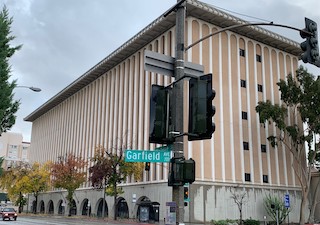If you face a bench warrant, it can be for many things. It may be for not filing certain documents in court to show progress on the complying with the terms of a plea bargain. It may be for not reporting to probation.
The solution to such situations is giving an attorney the documents the court needs, or paying the court fines or fees agreed up in the plea bargain and sending defendant and/or his or her attorney to court to address the bench warrant and request to file or pay the outstanding fees.
The Gist of this Article: A violation of one’s right to a speedy trial may apply if one is facing a bench warrant, depending upon what the warrant is for (and when it was issued, i.e. at the beginning of the case).
In most misdemeanor cases, a judge must allow an attorney to appear under Penal Code § 977(a) on a misdemeanor for such a recall. Bracher v Sup Ct. 205 Cal App 4th 1445, see also Olney v. Municipal Court 133 Cal.App.3d 455 (while there are certain exceptions to an attorney appearing for his or her client under Penal Code § 977(a), a judge otherwise must permit an attorney to appear for his client in a misdemeanor case absent specific factual findings by the court that the defendant’s presence is necessary).
A bench warrant also may have been issued for defendant not appearing at his or her arraignment in a misdemeanor case or not appearing in court for one’s “superior court” arraignment after a preliminary hearing in a felony case. When this happens, we always want to know when the arraignment was originally scheduled.
The reason is because the so-called Speedy Trial Clause of the Sixth Amendment to the United States Constitution, as well as Article 1, Section 15 of the California Constitution, both guarantee that “the accused shall enjoy the right to a speedy trial.” See also Serna v. Superior Court (1985) 40 Cal.3d 239.
 Pasadena Courthouse
Pasadena Courthouse
Generally speaking, the right to a speedy trial is the same under both the state and federal standards, but there are certain differences. The right “attaches” or becomes a constitutional right after the complaint is filed, either in a misdemeanor court prior to the initial arraignment (Serna, supra, at endnote 1, 248) or when an indictment or information is filed in a federal or felony case, respectively (People v. Martinez (2000) 22 Cal.4th 750, 755 (“The United States Supreme Court has defined the point at which the federal speedy trial right begins to operate: “[I]t is either a formal indictment or information or else the actual restraints imposed by arrest and holding to answer a criminal charge that engage the particular protections of the speedy trial provision of the Sixth Amendment [enforceable through Serna motions].” (United States v. Marion (1971) 404 U.S. 307, 320, 92 S.Ct. 455, 30 L.Ed.2d 468.)).
When or if a client facing a bench warrant tells us that more than one year has passed since his or her arraignment date in a misdemeanor case or since his or superior court arraignment on the information (after a preliminary hearing), we then discuss a Motion to Dismiss Based upon Violation of Defendant’s Right to a Speedy Trial. Some people refer to such a motion as a “Serna Motion,” in reference to Serna v Superior Court, mentioned above.
However, the mere passage of a year or more is not entirely determinative of whether a judge will grant the motion. There is more analysis, both under a state court standard and a federal standard. A good attorney will direct the judge’s attention to both standards and analyze the facts of the delay under both yardsticks.
We will want to know, first and foremost, why the client did not show up in court when he or she was supposed to for one’s arraignment in a misdemeanor case or superior court arraignment on the information in a felony case. Was it because he or she was in the hospital? If so, did anyone contact the court after the person was released or while the person was in the hospital? Was it because he or she moved and if so, why did he or she move? Did the client then attempt to come to court earlier and if so, when and what happened? Did the client know about the court’s interest in having him or her show up in court? Did the client previously hire another attorney and did that attorney assure the client there was no need to come to court?
We will then want to clarify four main facts before proceeding with a motion to dismiss based on a violation of one’s Sixth Amendment right to a speedy trial. We will want to know exactly how long the delay has been (how long since the filing of a complaint, indictment or information), the reason for the delay, the actual prejudice to the client (i.e. loss of witness contact information, loss of phone records, loss of other evidence, including loss of memory) and if there is any justification for the government’s delay in notifying our client of the warrant. These four factors are considerations under Barker v. Wingo (1972) 407 U.S. 514, 530, 92 S.Ct. 2182, 33 L.Ed.2d 101, and must be evaluated by a judge in deciding whether to dismiss the case.
 Pasadena Courthouse
Pasadena Courthouse